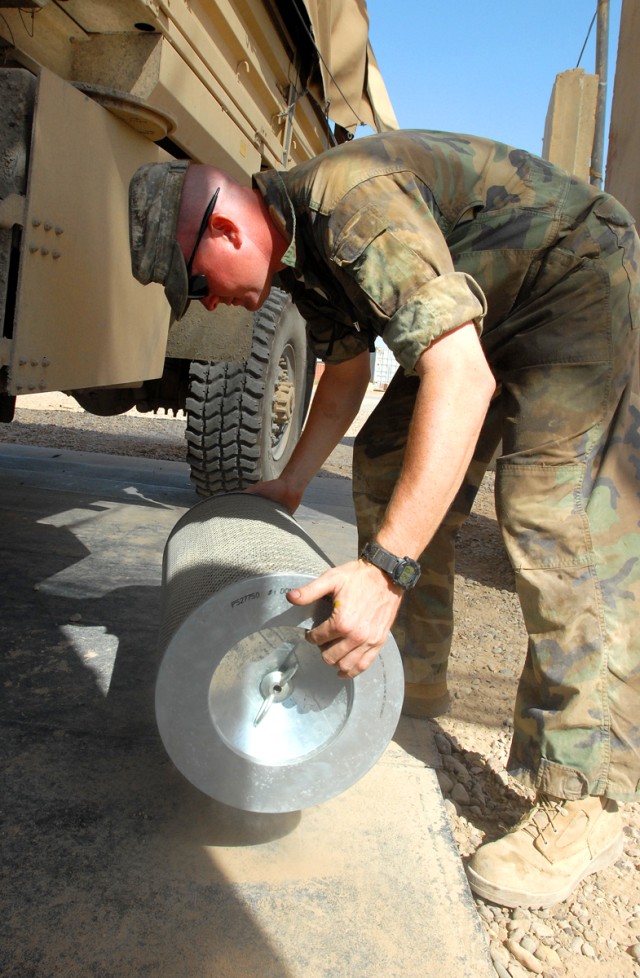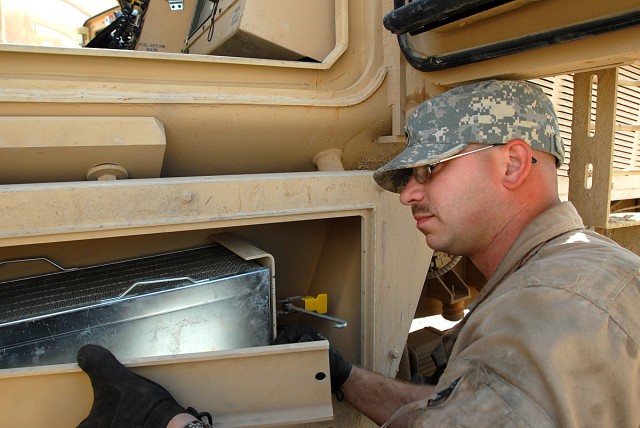CAMP LIBERTY, Iraq - Baghdad's reputation for dust getting into everything is a reality Soldiers face daily.
As dust accumulates quickly, problems persist, causing parts of a vehicle not to function to their full capacity. Keeping air filters free of too much dust is a must.
It is part of what should take place during preventative maintenance checks and services, and it should be done weekly, said Sgt. Michael Clark, the quality control and assurance shop foreman, from Arlington, Texas, assigned to Division Special Troops Battalion, 1st Cavalry Division.
Driving vehicles with dirty air filters can result in the worst of scenarios.
"It gets to the point where we have to send out a recovery team to recover them with a wrecker because they didn't clean the air filter," said Spc. Charles Marshall, a light-wheel mechanic, from Wheeling, W.V.
The premise is simple-keep filters as clean as possible, so there is good air quality flow to the combustion chamber of the engine.
"There are a number of things that can happen. With any improper flow to the engine, you can lose power and you can lose acceleration," said Marshall, assigned to quality control, DSTB, 1st Cav. Div. "Sometimes your transmission doesn't shift properly or your vehicle doesn't start."
Depending on the vehicle, Soldiers may find that removing the air filter to clean is not always convenient.
"MRAPs have a metal plate, a lot of operators don't like to take the plate off and avoid it all together," said Clark.
When it comes to cleaning these air filters, Soldiers have two options. The first method involves using equipment to solve the problem.
"Use an air compressor if you have one. The air compressor blows air and blows the dust out. It's the best way to do it if you have one," he said.
The other method requires Soldiers to physically shake out the dust. A good way to clean it out is to take it horizontally, turn it and use the metal rims to hit it against firm ground, said Clark.
"If you bang it flat you won't do any damage to it. Keep rotating it and this will knock most of the dirt out of it," he said.
If an air filter gets clogged up, expect to lose horsepower and acceleration. To avoid having this experience and the uncomfortable feeling of not knowing what to expect next, it is best to follow through with all PMCS procedures.




Social Sharing